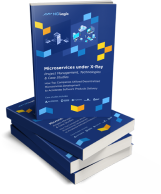As we delve into the digital age, the fields of finance and technology have become intricately intertwined, birthing an innovative hybrid sector known as financial technology, or “Fintech.” As this sector expands and evolves, one programming language stands at its epicenter, powering the development and execution of numerous innovative applications — Python.
In a world that’s constantly in flux, the financial industry has been one of the most profoundly impacted sectors by digital transformation. Every aspect of finance, from banking and trading to risk management and regulatory compliance, is now intertwined with technology. With the exponential increase in the generation of financial data, there is a burgeoning need for sophisticated tools and languages capable of managing, analyzing, and interpreting this data efficiently. Python, an open-source programming language with unique characteristics, has risen to the occasion, proving itself an invaluable asset in this pursuit.
Python is a high-level programming language that has taken the finance industry by storm, thanks to its simplicity, flexibility, and the extensive range of libraries it offers. It has emerged as the programming language of choice for many finance professionals and firms, whether they’re multinational banks, investment firms, financial institutions, or innovative startups. Python’s prevalence in finance has become so significant that knowledge of Python is increasingly seen as a fundamental skill for anyone aspiring to make a mark in the financial industry.
So, whether you are a financial analyst seeking to bolster your technical skills, a budding Fintech entrepreneur exploring the potential of Python, or simply a curious reader intrigued by the amalgamation of finance and technology, this article will illuminate the broad spectrum of Python’s utilization in finance. Dive in to unravel the world of Python in the realm of finance and understand why this programming language is not just a tool, but a game-changer for the financial industry.
Brief History of Python Programming in Financial Data Analytics
The history of Python in the finance industry is an enthralling narrative of the convergence of two distinct but mutually reinforcing fields. Python, which emerged in the late 1990s, was not initially designed with finance in mind. However, as the financial sector began to recognize the potential for technological innovation and efficiency, Python emerged as a powerhouse for driving this evolution of financial transactions.
The inception of Python for finance only dates back to 1989, with Guido van Rossum at the helm. The language, influenced by the ABC and Modula-3 languages, was designed with an emphasis on simplicity, readability, and the facilitation of software quality. This vision and the language’s capacity for handling large datasets effectively made it an intriguing prospect for the finance sector.
The first significant adoption of Python in the world of finance can be traced back to the early 2000s. During this period, finance was becoming increasingly quantitative and qualitative analysis only, and the limitations of traditional tools like Excel became more apparent. Investment banks and hedge funds began experimenting with Python as a tool for automating tasks and handling large volumes of data.
Around this time, JP Morgan introduced Athena, an investment banking platform primarily written in Python. Athena is essentially a risk management, pricing, and trade management platform, and its successful deployment proved Python’s potential in the financial sector. Meanwhile, Bank of America’s Quartz platform, which also heavily relies on Python for its sophisticated financial calculations and analysis, was another testament to Python’s utility in complex financial modeling and risk management.
The emergence of Python as a prominent language in finance was propelled by its versatility and the advent of several Python libraries specifically tailored to finance. Libraries like NumPy and SciPy, introduced in the early to mid-2000s, allowed for efficient numerical and scientific computations — something finance professionals and researchers found incredibly valuable. Later, with the advent of pandas in 2008, Python’s capabilities expanded into data analysis and manipulation, further solidifying its position among the most popular programming languages in the finance realm.
The subsequent explosion of Fintech startups in the 2010s marked another milestone in Python’s history in finance. These startups leveraged Python’s capabilities to create innovative applications and services, ranging from mobile banking and payment solutions to algorithmic trading systems, reshaping the financial landscape in the process.
Python’s involvement in finance and data science also extends to the world of cryptocurrencies. With the advent of Bitcoin in 2009 and the subsequent proliferation of other digital currencies, Python’s versatility and robust data handling capabilities have been instrumental in the development of cryptocurrency analysis tools, exchange platforms, and blockchain technology.
The ongoing evolution of Python libraries and tools, coupled with the growing importance of machine learning and AI in finance, ensures that Python continues to be a dominant force in the financial sector. Institutions, from traditional banks to disruptive fintech startups, are continually leveraging Python’s capabilities to innovate, enhance efficiency, and maintain a competitive edge.
Benefits of Python in Finance and Fintech
Python has a growing reputation as the preferred programming language in the finance and Fintech industry. This is not a result of chance, but rather due to Python’s robust features and capabilities that align well with the needs of these sectors. In this section, we will delve into the reasons why Python has become such a valuable tool in finance and Fintech.
Simplified Syntax and Readability
Python’s syntax is simple and its codes are readable, which allows finance professionals without extensive programming experience to understand and even write Python code. This simplicity helps in faster development and reduces the time and cost of software maintenance and financial analysis. Readability also helps with auditing, understanding algorithms, and reviewing codes, which are crucial elements in the finance industry.
Libraries and Packages for Finance
Python boasts a wealth of libraries and packages specifically tailored to cater to the needs of finance and Fintech. Libraries such as NumPy and SciPy are great for mathematical and scientific computation. Pandas is excellent for data manipulation and analysis, while Matplotlib and Seaborn aid in data visualization. For machine learning applications, Scikit-learn and TensorFlow have become go-to tools. The presence of these pre-built libraries makes Python an extremely versatile tool for financial applications.
Efficient Data Handling Capabilities
Finance and Fintech sectors are often awash with massive amounts of data. Python’s effective data handling and processing capabilities make it an excellent choice for these sectors. With Python, data extraction, cleaning, manipulation, and visualization of big financial data become far easier tasks. This helps financial analysts and data scientists make sense of complex data sets, deriving valuable insights that help make informed decisions.
Integration and Compatibility
Python can easily integrate with other programming languages, and systems, enhancing its compatibility and versatility. It also supports multiple formats and data sources, including CSV, Excel files, SQL databases, and even real-time data feeds. This compatibility makes Python a flexible tool within a company’s tech stack, enhancing interoperability and reducing costs.
Scalability and Performance
Python is a high-level language that abstracts many of the complex details of the machine. This allows developers to focus on the logic of the application and makes the language easier to learn and use. Despite its simplicity, Python doesn’t sacrifice performance. It’s powerful enough to support large-scale applications and data-intensive tasks, making it a scalable solution for businesses as they grow.
Support for Machine Learning and AI
Python is a popular language for machine learning and AI – areas that are increasingly important in finance and Fintech. Python’s robust tools and libraries for machine learning, like Scikit-learn and TensorFlow, facilitate the development of predictive models and AI-driven solutions. Whether it’s fraud detection, risk assessment, customer segmentation, or stock market prediction, the machine learning language Python supports it all.
Active Community and Support
Python has one of the largest and most active programming communities. This means abundant resources, regular updates, comprehensive documentation, and a wide range of third-party modules. If developers run into issues or need to learn new features, chances are there’s a Python community member who’s already found a solution or is willing to help.
Cost Efficiency
Python is an open-source language, meaning it’s free to use. This makes it a cost-effective choice for startups and enterprises alike. The language’s efficiency and speed can also reduce development time, bringing products and services to market more quickly.
Use Cases of Python In Finance and Fintech
Python’s versatility and powerful feature set have led to its wide adoption in the finance and Fintech industries. Across the board, firms are leveraging Python’s capabilities to improve their operations and offer more value to their customers.
Algorithmic Trading and Quantitative Analysis
Python’s strength in numerical computation, combined with its readability and simplicity, make it ideal for algorithmic trading and quantitative analysis. Python’s libraries such as NumPy, pandas, and Matplotlib allow analysts to efficiently analyze large datasets and visualize their findings, helping them create effective trading strategies. Libraries like Zipline and PyAlgoTrade facilitate backtesting of these strategies, ensuring they are robust before live trading.
Risk Management
Financial institutions have to continuously manage and mitigate a variety of risks, including credit risk, market risk, and operational risk. Python’s robust data analysis capabilities and its machine learning libraries, such as Scikit-learn and TensorFlow, can be used to analyze financial data and build predictive models that identify potential risks and suggest mitigation strategies. Python’s simulation libraries can also be used to perform stress testing and scenario analysis.
Pricing Derivatives and Options
Python has been extensively used in the pricing of derivatives and options. Libraries such as QuantLib and finmarketpy facilitate the implementation of numerous financial models to calculate the price of derivatives. This includes Black-Scholes, Monte Carlo simulations, and binomial tree models. The efficient computation and clear syntax of Python make it a preferred choice for such complex calculations.
Portfolio Management
Python’s efficient data analysis capabilities make it an excellent tool for portfolio management. Portfolio managers can use Python libraries such as pandas, NumPy, and SciPy to analyze asset correlations, calculate portfolio risk and return, and optimize portfolio allocations. Python also allows for the integration of real-time data, helping portfolio managers make timely decisions.
Financial Forecasting
Python’s powerful machine learning and AI libraries like TensorFlow and PyTorch make it possible to create sophisticated predictive models for financial forecasting. These can be used for predicting stock market trends, economic indicators, or company performance, helping investors and analysts make informed decisions.
Regulatory Compliance
With financial institutions facing a myriad of regulatory requirements, Python can be used to automate compliance tasks. For instance, Python can be used to implement algorithms that monitor transactions in real-time to detect any fraudulent activities, thereby ensuring compliance with anti-money laundering (AML) regulations. Python’s text analysis capabilities can also be used to analyze regulatory documents and extract relevant information.
Fintech Applications
Python is extensively used in building Fintech applications. Whether it’s a digital wallet like Venmo, a peer-to-peer lending platform like Zopa, or a robo-advisor for automated investing, Python provides the needed flexibility and performance. Python’s compatibility with other technologies also allows for seamless integration of various Fintech services.
Conclusion
As we draw our exploration of Python’s role in finance and fintech to a close, it’s clear to see that this versatile programming language has radically transformed these sectors. It has become an instrumental tool for financial analysis, risk management, and algorithmic trading, as well as for developing innovative fintech applications. Python has facilitated more efficient data processing, predictive modeling, and the development of advanced financial applications, establishing itself as an integral part of the contemporary financial ecosystem.
However, to leverage Python’s capabilities to their fullest extent, financial institutions and fintech companies often require expert assistance. This is where NG Logic comes into play. With extensive experience in Python development and a good understanding of the financial sector, NG Logic is well-positioned to take Python knowledge to provide top-notch IT solutions for financial institutions and fintech companies.
NG Logic offers bespoke Python development services tailored to the unique needs of each client. Whether it’s creating advanced financial models, building sophisticated fintech applications, or integrating our Python finance solutions into existing systems, NG Logic has the expertise and resources to deliver high-quality results. Our skilled Python developers understand the intricacies of the finance sector and are adept at using Python to solve complex financial problems.
Furthermore, we adhere to the highest standards of data security, ensuring that your financial data is handled with utmost care and confidentiality. We understand the critical importance of data security in the finance sector and implement stringent security measures in every financial institution and project we undertake.












 +1 (888)
413 3806
+1 (888)
413 3806